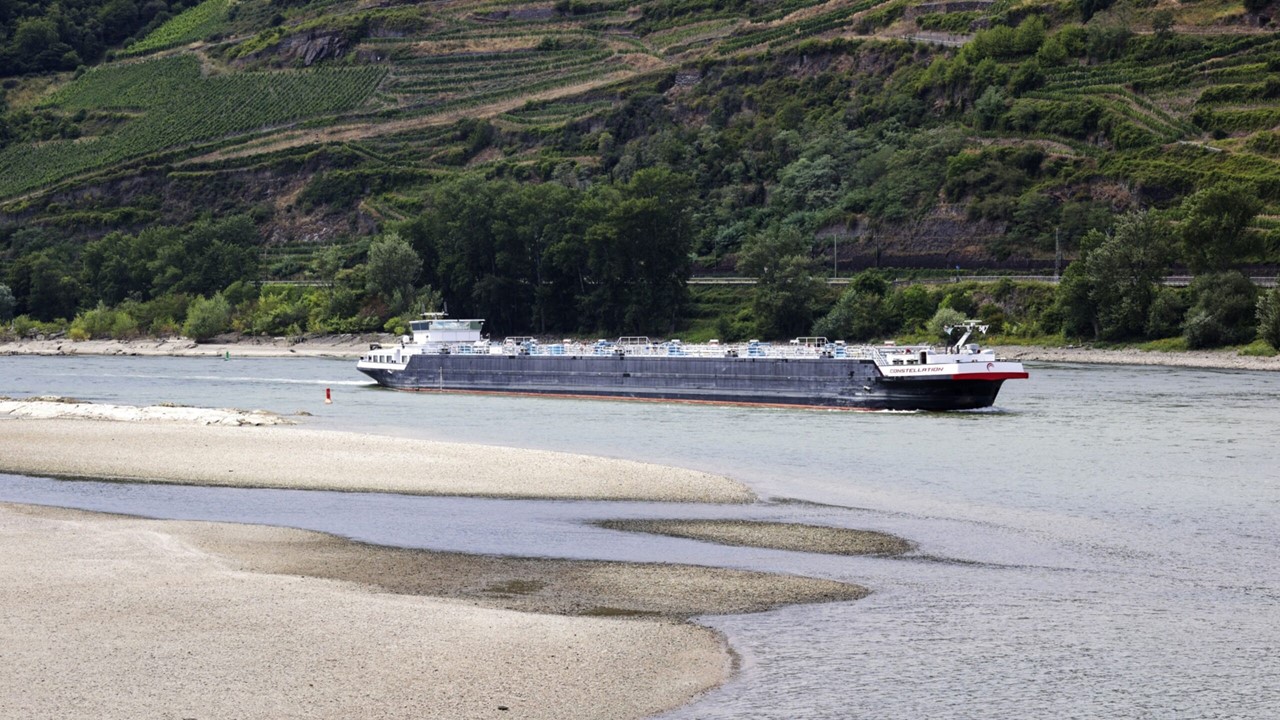Cologne – Weeks of dry weather are turning water levels on the Rhine River to a critically low point in the coming days, German officials said Wednesday, making it increasingly difficult to transport goods — including coal and gasoline — as drought and an energy crisis grip Europe.
Climate change is affecting several of Europe’s major waterways, turning them into trickles, posing a headache for German factories and power plants that rely on deliveries by ship and making an economic slowdown ever more likely. According to Capital Economics, transporting goods by inland waterways is more important in Germany than in many other Western European countries.
“This is particularly the case for the Rhine, whose nautical bottleneck at Kaub has very low water levels but which remains navigable for ships with small drafts,” said Tim Alexandrin, a spokesman for Germany’s Transport Ministry.
Authorities predict that water levels at Kaub will dip below the mark of 40 centimeters early Friday and keep falling over the weekend. While this is still higher than the record low of 27 centimeters seen in October 2018, many large ships could struggle to safely pass the river at that spot, located roughly mid-way along the Rhine between Koblenz and Mainz.

Most of Europe, from France and Italy, is struggling with dry weather, shrinking waterways and heat waves that are becoming more severe and frequent because of climate change. Low water levels are another blow for industry in Germany, which is struggling with shrinking flows of natural gas that have sent prices surging.
“We hope that shipping won’t be halted, but we saw in 2018 that when water levels got very low the gas stations suddenly had no more fuel because ships couldn’t get through,” Lorenz said.
Authorities are taking steps to shift more goods traffic onto the rail network and, if necessary, give it priority, said Alexandrin, the Transport Ministry spokesman.
The river transportation issues are not problematic for German industry as shrinking flows and rising prices for natural gas, he said, with Russia having reduced deliveries to Germany through the Nord Stream 1 pipeline to 20% of capacity. But the woes on the Rhine could still take a small bite out of economic growth if they last until December, add a bit to already-high inflation and lead industrial production to drop slightly, the economist said.
HGK and other shipping companies are preparing for a “new normal” in which low water levels become more common as global warming makes droughts more severe, sapping water along the length of the Rhine from the Swiss Alps to the North Sea.
All new ships being ordered by the company will be built with a view to making them suitable for low water levels on the Rhine, he said.
-AP